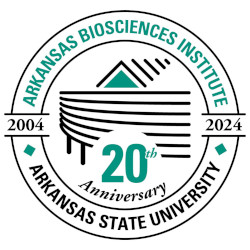Antioxidant Assessment of Prenylated Stilbenoid-Rich Extracts from Elicited Hairy Root Cultures of Three Cultivars of Peanut (Arachis hypogaea)
Document Type
Article
Publication Title
Molecules (Basel, Switzerland)
PubMed ID
34833870
MeSH Headings (Medical Subject Headings)
Antioxidants (analysis, pharmacology); Arachis (metabolism); Culture Media; Eicosanoic Acids; Fabaceae (metabolism); Humans; Oxidative Stress (physiology); Plant Extracts (pharmacology); Plant Roots (metabolism); Protein Prenylation (physiology); Stilbenes (chemistry, isolation & purification, metabolism); Stress, Physiological (physiology)
Abstract
Peanut produces prenylated stilbenoids upon biotic stress. However, the role of these compounds against oxidative stress have not been thoroughly elucidated. To this end, the antioxidant capacity of extracts enriched in prenylated stilbenoids and derivatives was studied. To produce these extracts, hairy root cultures of peanut cultivars Hull, Tifrunner, and Georgia Green were co-treated with methyl jasmonate, cyclodextrin, hydrogen peroxide, and magnesium chloride and then the stilbenoids were extracted from the culture medium. Among the three cultivars, higher levels of the stilbenoid derivatives arachidin-1 and arachidin-6 were detected in cultivar Tifrunner. Upon reaction with 2,2-diphenyl-1picrylhydrazyl, extracts from cultivar Tifrunner showed the highest antioxidant capacity with an IC of 6.004 µg/mL. Furthermore, these extracts had significantly higher antioxidant capacity at 6.25 µg/mL and 3.125 µg/mL when compared to extracts from cultivars Hull and Georgia Green. The stilbenoid-rich extracts from peanut hairy roots show high antioxidant capacity and merit further study as potential nutraceuticals to promote human health.
DOI
10.3390/molecules26226778
Publication Date
11-10-2021
Recommended Citation
Gajurel, Gaurav; Hasan, Rokib; and Medina-Bolivar, Fabricio, "Antioxidant Assessment of Prenylated Stilbenoid-Rich Extracts from Elicited Hairy Root Cultures of Three Cultivars of Peanut (Arachis hypogaea)" (2021). Arkansas Biosciences Institute. 42.
https://arch.astate.edu/abi/42


